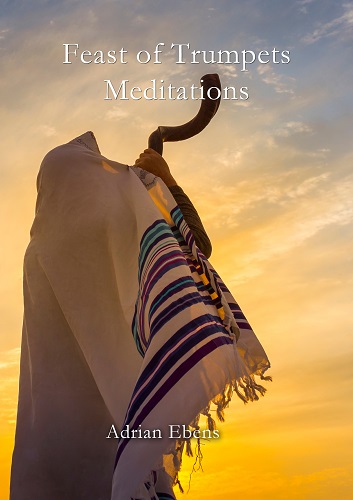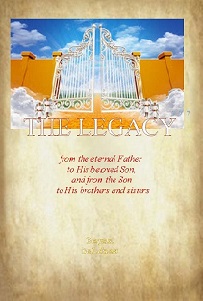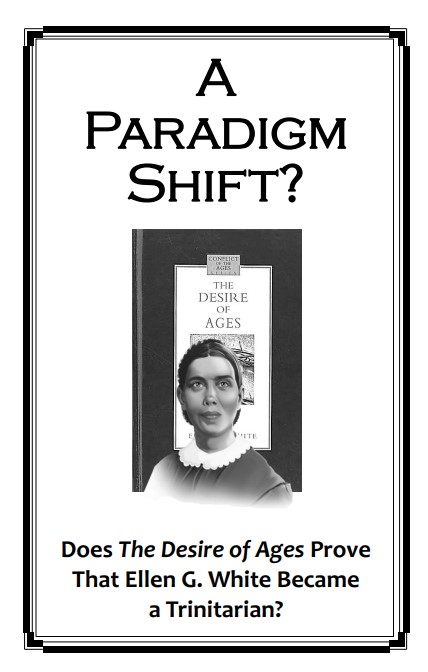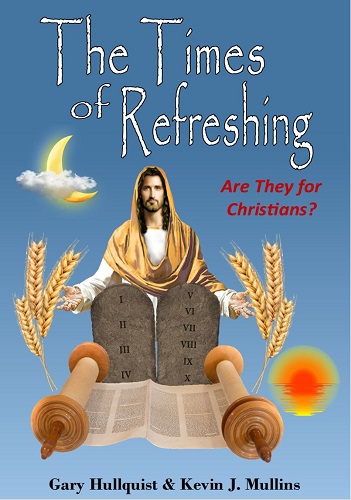Ellen White Comments on the Threefold Name
Bobbyb's excellent research on the comparisons between John Harris and Ellen White inspired me to examine in more detail his book “The Great Teacher: Characteristics of Our Lord’s Ministry” published in 1836.
In the year1900 Ellen White wrote in Testimonies to the Church voume 6 about the importance of baptism. On page 91 she restates a number of expressions first made by John Harris in his book. How she changed what Harris said is very enlightening.
In Section IV “Of the Doctrine of the Trinity, and of a Spiritual Church” Harris wrote:
Our Lord instituted but two ordinances—baptism and the Lord’s supper; he erected but two monumental pillars; one without, and the other within the church: on the first of these, that which fronts the world, he inscribed the great name of the triune God;” p. 205
Ellen White restated these words somewhat differently:
The ordinances of baptism and the Lord's Supper are two monumental pillars, one without and one within the church. Upon these ordinances Christ has inscribed the name of the true God.” 6T p. 91, 1900.
To Ellen White, God is “the true God” not a “triune God”. As we will finally discover, she clearly understood who God is.
Continuing on, John Harris writes:
Baptism is the vestibule, or entrance, to his spiritual temple, the church; so that before his disciples can pass the threshold, he requires them to receive the print of the Sacred Name: and by making that one ceremony final, he reminds them that the holy signature is indelible.” p. 205
Ellen White’s version is:
Before man can find a home in the church, before passing the threshold of God's spiritual kingdom, he is to receive the impress of the divine name, "The Lord our Righteousness." Jeremiah 23:6.” 6T p. 91, 1900.
Harris has just referred to the “great name of the triune God”.
Ellen White defines what she means by “the divine name” : “The Lord our righteousness”.
John Harris again:
By baptizing us into the threefold name of God, he would impress us at the very outset of our christian life with the fact, that the work of our salvation is so vast that it brings into action every distinction and attribute of the divine nature; that the Father, the Son, and the Holy Spirit, the entire Godhead, find ample scope for the exercise of all their perfections, and employment of all the affluence of their grace.” p. 205
Harris speaks of the “threefold name of God”.
Ellen, however, does not identify the threefold name as applying only to God.
Baptism is a most solemn renunciation of the world. Those who are baptized in the threefold name of the Father, the Son, and the Holy Spirit, at the very entrance of their Christian life declare publicly that they have forsaken the service of Satan and have become members of the royal family, children of the heavenly King.”
6T p. 91
She includes the Father, Son and Holy Spirit.
Where Harris speaks of “the entire Godhead” EGW calls them “the royal family”.
John Harris writes:
If, before, we considered our obligations infinite, what shall we think of them now, on beholding the Father, the Son, and the Holy Spirit, three distinct subsistences, actually confederating and concurring together, and embarking all their infinite treasures in the cause of our happiness:” p. 205
Harris, in the context of “obligations” describes the Father, Son and Holy Spirit as “three distinct subsistences”, a trinitarian expression referring to the triune attribute of consubstantiation which is never used by Ellen White.
Christ has made baptism the sign of entrance to His spiritual kingdom. He has made this a positive condition with which all must comply who wish to be acknowledged as under the authority of the Father, the Son, and the Holy Spirit.” 6T p. 91 1900
Harris continues with his use of typical trinitarian terminology by combining the “three subsistencies” into a single Divine Essence, one Divine Being.
How amazing the thought, that the Godhead, the three glorious subsistencies in the Divine Essence should be all officially present to receive us in the baptismal solemnity, the porch of the church, that all the Divine Being should be there, to enter into covenant relation with us;” p. 206
It is significant that at this point in her parallel revisions of Harris’ material that Ellen White appeals to the prevalent Adventist theme of separation from Babylon, the call of the Third and Fourth Angels, “Come out of her, My people.” The wine of man-made doctrines is rejected in favor of God's Word.
They have obeyed the command: "Come out from among them, and be ye separate, . . . and touch not the unclean thing." And to them is fulfilled the promise: "I will receive you, and will be a Father unto you, and ye shall be My sons and daughters, saith the Lord Almighty." 2 Corinthians 6:17, 18.” Testimonies Vol. 6, p. 91,1900.
In the context of Baptism, so laced with trinitarian language by Harris, Ellen White accentuates God the Father, the Lord Almighty and then makes a clear distinction of how God relates to the “threefold name.”
In the name of the Father, the Son, and the Holy Spirit we are buried in the likeness of Christ's death and raised in the likeness of His resurrection, and we are to live a new life. Our life is to be bound up with the life of Christ. Henceforth the believer is to bear in mind that he is dedicated to God, to Christ, and to the Holy Spirit.” 6T p. 98
To Ellen White, God is not a combination of Father, Son and Holy Spirit, but rather God is the Father, and Christ is the Son, as is so abundantly stated in Scripture:
John 3:16; 1John 4:9,10; 5:9,10,11; Heb 1:1,2; Rom 1:3; Acts 3:13; John 11:4; Rom 5:10; 8:29; Gal 1:15; 4:4,6; 1Thes 1:9,10; Acts 3:26; 1Cor 1:9; John 1:1; 1John 5:20; Rev 21:22; 22:1,3; 12:10; 20:6; Eph 5:5; 1Cor 11:3; Eph 4:32; 1Cor 15:15; 1Tim 6:13; 1Tim 2:5; Heb 12:23,24; 1Pet 5:10; Eph 3:9; Acts 2:36; 2Cor 5:18; Rom 16:27; 1Cor 1:4; John 17:3; Titus 2:13; 3:4-6; 2Tim 4:1; 1Tim 5:21; 2Thes 1:12; Eph 1:17; 1Thes 5:23; 1Pet 4:11; Phil 1:11; 2Pet 1:1,2; 3:22; Luke 1:32; 1Cor 8:6; Rom 1:7; 1Cor 1:3; 2Cor 1:3; Eph 1:2; Phil 1:2; Col 1:2; 2Thes 1:1,2; 1Tim 1:1,2; Philemon 1:3; Titus 1:4; Gal 1:1,3; Col 1:3; 2John 1:3; 2Tim 1:2; 1Thes 3:11; 2Pet 1:16,17; 2Pet 1:1; John 6:27; Eph 4:5,6; Phil 2:11; Rom 15:6; 2Cor 1:3;11:31; Eph 1:3; 1Pet 1:3; Rev 1:5,6; 1Thes 3:13; 1Cor 15:24; 2Thes 2:16; John 5:26.
This section of Testimonies volume 6, which features her only mention of the expression “threefold name,” (because she was correcting the statements made by Harris) is replicated in numerous subsequent compilations: Ev p. 307, 1946; 6BC p. 1075, 1956; The Faith I Live By p. 145, 1958; 7ABC p. 442, 1970; God’s Amazing Grace p. 143, 1973; Lift Him Up p. 302, 1988; Councils to the Church p. 295, 1991.





